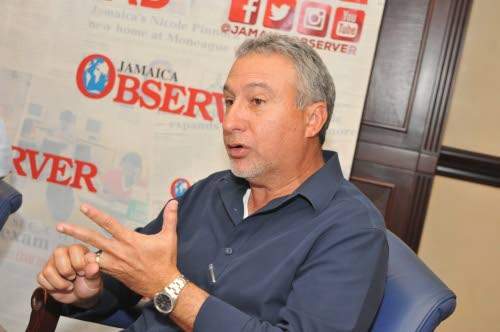The Jamaica Manufacturers and Exporters Association (JMEA) is supporting the need for a more highly skilled and competitive labour force. This they believe will increase the country’s ability to provide more value-added products and services to the manufacturing sector, pursuant to training.
Metry Seaga, past president of the JMEA while speaking at last week’s Jamaica Observer Monday Exchange said that from his position as chairman of the special economic zone (SEZ) he finds that as a country we have continued to remain in the bottom half when it comes to adding value to our own products.
“It is important for all of us to understand that what Jamaica has done from we born, is that we have taken our raw materials, we have allowed others to come here and take our raw materials and we send them away, and what they do over there is to add value to it, making themselves richer, sending the products back here and teaching us how to like those products.
“If we don’t add value, we’re going to stay where we are. Other nations have become rich off our backs , we have to start to reverse this and the only way to do that is to add value; so that manufacturing and agriculture and all of the things in production that are going to make us rich, we need to add the value here. We have to be at the top end of the totem pole, we can’t stay at the bottom anymore,” he said.
He further reasoned that in order to change this pattern, the shifting of people’s mindset will become very useful.
“We have got to flip that switch; we have to have a paradigm shift in our mindsets, to say no more of that! When we send sugar cane, coffee and bulk items away we are trading in commodities, we’re not big enough to trade in commodities hence we will always be in a race to the bottom in that regard, so the answer is to add value here at home,” he said.
The JMEA past president and SEZ chairman argued that while Government has provided the necessary structures to become traders and service providers, they now need to make it easier for persons to become manufacturers and also be given the necessary resources needed for them to add value to their offerings. He shared the view that Jamaicans are some of the best workers in the world, requiring only the requisite training and compensation needed to match world standards.
“I am willing to put any one of the 100 workers I have in my factory against 100 of anybody else in this world, to do the same job and do it better. Jamaicans are the best workers anywhere in the world, if they are equally trained and equally compensated. As management we have not believed in training, we have not trained enough, we throw people in the deep end and say go do what you doing but manufacturing requires training people and it requires productivity,” he asserted.
Richard Pandohie, the current president of the JMEA also echoed some similar comments when he spoke at a recent Rotary Club Luncheon on November 21, mentioning that the improvement in the economy creates the need for higher skill sets. He argued that we now have to be more intentional in how we prepare our people to join the labour force especially in the ever changing global village, one which is becoming more digitised.
“We have to determine what disciplines we educate our people, pursue critical thinking training, relevant research and development and increased skills. We have to equip our people to be technology savvy so that we can embrace disruptive technologies to drive our productivity and enhance our competitiveness.
“Otherwise we may find ourselves occupying the lowest part of the labour value chain and the import of persons to take on the jobs that really transform lives or exporting our primary products to create higher quality jobs in other economies as they add value to our products,” he said.
Dr Janet Dyer, executive director of the HEART Trust/national training agency (NTA), who was also a guest at the Monday Exchange, said that from her agency’s standpoint, they are trying to correct this. This, as they employ first world content and strategies in teaching and training, aimed at making Jamaicans more ready for the future of work; a future which is heavily geared towards digitisation and artificial intelligence.
“We are now in response mode to ensuring that our labs and instructors are at that international level so when we train our persons, they are trained locally but at international standards. We not only seek to train persons for here and now but according to what is happening. As we look to the future, we see what is there and we move to train persons accordingly,” she responded.




Leave A Comment